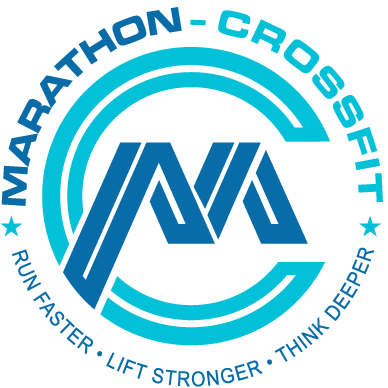Focusing on Achievement: How a CrossFit Regimen Helps in Addiction Recovery
For this article I teamed up with the crew from The Recovery Village. This piece discussing how CrossFit can help in addiction recovery was written by Devin Golden. I never had a serious drug or alcohol addiction, but my parents were both heavy smokers. They did not exercise regularly after their teenage years. My mother took care that I learned the concept of discipline and delayed reward introducing me to Judo.I think this lead to me not taking up smoking in my teenage years. This article sets the context for exercise on a topic that matters. Thanks to Carlos team for contributing and I leave the rest to the professionals.
One of the oft-stated keys to recovery is finding a new passion to direct one’s mental energy and emotional investment. People who suffer from a substance use disorder and were addicted to drugs or alcohol frequently spent a lot of time struggling with this illness. Their daily routines often revolved around misusing substances, and it can dominate their lives.
So when a person completes a rehabilitation program, such as with The Recovery Village or another facility, they’ve removed the substances from their bodies and learned coping mechanisms to help with psychological dependence. However, they are not suddenly cured from the illness or the struggles. In many ways, they need to learn a new routine to keep their attention away from substance misuse and focused on building a healthier life in their recovery. One of the benefits of exercise is it helps people feel accomplished and also keeps them motivated. More specifically, starting a CrossFit regimen can be even more beneficial, since it’s a challenging program with a large amount of self-worth waiting after each workout.
Using CrossFit as a coping mechanism against substance misuse is nothing new, as numerous success stories have emerged about how gyms foster a positive environment for people who are in recovery. Some locations even form connections with rehab facilities to help people in programs.
There are specific reasons why CrossFit can help, from psychological and emotional benefits to physical ones such as muscle strength and healthy dietary practices. Here’s how a crossfit program can help people fend off drug and alcohol addiction and continue their recovery.
Setting and Meeting Goals
Brooklyn resident Patrick U. told The Fix that one of the keys to CrossFit helping his recovery is the accomplishment factor involved. Not only is there accomplishment in an exercise regimen, but it’s also connected to the positive feeling of remaining in sobriety.
He gave a specific example by saying, “You want to squat 300 pounds by end of year? You go up in weight in small increments and that’s how I look at everything in sobriety — baby steps and ultimately you reach that goal.”
When people first join a CrossFit gym, they might find out their strength and endurance are lacking. People who suffer from substance use disorders quite often lose weight and muscle strength due to their drug or alcohol misuse. So re-entering the physical-exercise lifestyle can seem daunting for someone who has recently started down the path to recovery. That first day might reveal a steep hill to climb to meet the goals of a CrossFit program. However, each day is a small step up that hill and a little accomplishment in and of itself.
Eating Healthier
If you’re joining a CrossFit gym, you should fully commit to the healthier lifestyle in. An improved dietary plan helps with physical fitness since your body becomes stronger as it takes in certain vitamins and minerals.
Committing to a better diet also increases happiness, as an Australian study revealed. In general, eating fruits and vegetables improves people’s moods, which can prevent a resumption of substance misuse during recovery. Additionally, eating healthier makes people feel better about themselves and can be another way to feel accomplished.
The U.S. News and World Report explained the best diet for people in recovery: Avoiding sugar and caffeine and focusing on digestible foods, minerals and vitamins is essential to maintaining one’s sobriety. Additionally, all of the article’s tips can increase energy for a Crossfit workout.
Stress Relief
Stress is a common reason for people to misuse substances. Shahram Heshmat, Ph.D., writes in Psychology Today that, “Stress is a key risk factor in addiction initiation, maintenance, relapse, and thus treatment failure. Stressful life events combined with poor coping skills may impact risk of addiction through increasing impulsive responding and self-medication. While it may not be possible to eliminate stress, we need to find ways to manage it.”
Since there is a connection between stress and substance misuse, people in recovery who have a history of substance use disorders might struggle more with difficult periods of time. People who suffer from extreme amounts of stress also can suffer from mental health disorders, including anxiety or depression. Some of these illnesses can be co-occurring struggles and could cause someone in recovery to resume substance misuse as a way of self-medicating a mental disorder. CrossFit can provide an escape valve, though, as it’s an effective way to evict stress from one’s mind.
The exercise regimen was created in 2000 and became more popular each year due to its effectiveness at building strength and endurance and for the benefits it brings to a person’s mental-wellness. One of the positives of the exercise style is the variation in types of activities and the challenging nature. A standard CrossFit workout, while open for differentiation for each person, includes various forms of exercise:
- High-intensity interval training
- Powerlifting
- Plyometrics and calisthenics
- Cardiovascular
Since there is such a disparity in the types of workouts offered and the muscles focused on, CrossFit provides a chance for everyone regardless of physical skill to participate and work their way up to a healthier existence. Whether it’s cardiovascular activities that increase endurance or weightlifting, all of the mental and emotional baggage brought into the gym can be unpacked.
A Sense of Community
One of the major benefits of a rehabilitation program at a facility such as The Recovery Village is the supportive network offered to people. They’ll find others just like themselves struggling with a substance use disorder, and while this illness is not identical for any two individuals, the camaraderie in group counseling sessions and at different offerings such as art therapy can form bonds and relationships that last a lifetime.
When people leave their rehabilitation facilities, they’re often removed in many ways from that environment, either returned to family or on their own. Attending 12-step programs after a rehab program can be a benefit, but joining a gym and participating in CrossFit brings a similar sense of camaraderie to people, as explained by the website The Odyssey.
“At a gym, people usually work out by themselves,” Mackenzie Miles writes in her article “CrossFit Can Fix Stress and Anxiety.”
She continues, “Some have a set routine, others have an idea of what muscles they want to work out that day, but most people go to the gym to do cardio, do some abs, or lift some weights until they get tired.
“At Crossfit, you never work out alone. People are always there to encourage you or, even better, doing it with you. … You push and you fight and the people around you encourage you to keep going.”
Each accomplishment is cheered, and voices are building you up and pushing you toward success along the way. One of the challenges of continuing recovery is doing so alone, and having a support system in place can be a comforting feeling. People who might be struggling with urges or triggers to resume misuse of drugs or alcohol can rely on their workout community to keep their mind focused and looking forward to accomplishment, no matter how big or small.
Further reading
- Accupunctures Impact on Opioid addictions and pain management [Article, Statistic]
- 12 practical tips for fitness coaches to be healthier
- As a man thinketh for fitness coaches
- Best apps for fitness coaches
- Choose yourself for fitness coaches
- Deep work for fitness coaches
- Finish for fitness coaches
- Grit for fitness coaches
- How fitness coaches get mindfulness easily
- How fitness coaches get unlimited power for their clients
- Mastery for fitness coaches
- Rework for fitness coaches
- The ONE Thing for fitness coaches
- The power of now for fitness coaches
- The power of positive thinking for fitness coaches
- The power of thinking big for fitness coaches


